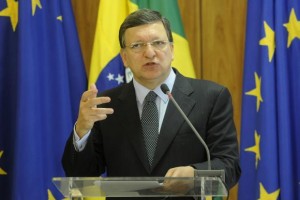
The EU and South America have stepped up their talks. EU trade agreements are now in demand with other trading blocks
This is because of Donald Trump’s decision to remove the US from the trans-Pacific trade deal has stimulated leaders in the EU & the founding members of the South American trading block called Mercosur (Argentina, Brazil, Paraguay, and Uruguay) to finalize a trade agreement on talks which have been on-going since 1999.
Whilst there is a new impetus on getting a deal done, there is still significant issues which both sides need to overcome. The EU has issues in protecting its Agricultural sector from cheap imports of poultry, beef and sugar from the Mercosur block. The EU is demanding that the Mercosur block allow EU companies to bid for government contracts along with it agreeing to adopt international standards for climate change and labor.
An agreement would represent an increase of 5 billion U.S. dollars in the gross domestic product (GDP) for Mercosur nations, and a nearly 40% increase in their exports to Europe.
From 2005 to 2015 the EU exports to the Mercosur countries has risen from €21 billion to €46 billion. While in the same period Mercosur exports to the EU has risen from €32 billion to €42 billion.
The EU’s exports to Mercosur include machinery (29%), vehicles and parts (17% of total exports) and chemicals & pharmaceuticals (24%).
Mercosur’s biggest exports to the EU in 2015 were agricultural products, such as foodstuffs, beverages and tobacco (24%), vegetable products including soya and coffee (18%) and meats and other animal products (6%). Other exports include mineral products (14%), wood and paper products (8%) and machinery (5%).
Diplomats are hopeful that agreement can be reached before the end of 2017.
